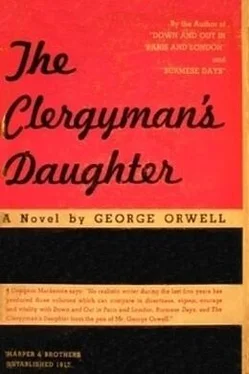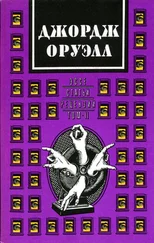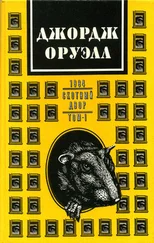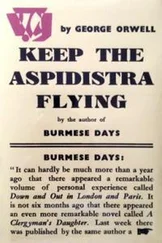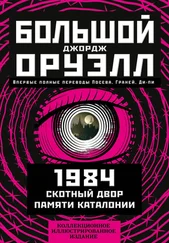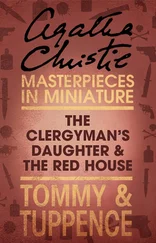It was a bill—for certain it was a bill! Moreover, as soon as she set eyes on it she 'knew' that it was that horrible bill from Cargill's, the butcher's. A sinking feeling passed through her entrails. For a moment she actually began to pray that it might not be Cargill's bill—that it might only be the bill for three and nine from Solepipe's, the draper's, or the bill from the International or the baker's or the dairy—anything except Cargill's bill! Then, mastering her panic, she took the envelope from the letter–flap and tore it open with a convulsive movement.
'To account rendered: L21 7S. 9d.'
This was written in the innocuous handwriting of Mr Cargill's accountant. But underneath, in thick, accusing–looking letters, was added and heavily underlined: 'Shd. like to bring to your notice that this bill has been owing a VERY LONG TIME. The EARLIEST POSSIBLE settlement will oblige, S. Cargill.'
Dorothy had turned a shade paler, and was conscious of not wanting any breakfast. She thrust the bill into her pocket and went into the dining–room. It was a smallish, dark room, badly in need of repapering, and, like every other room in the Rectory, it had the air of having been furnished from the sweepings of an antique shop. The furniture was 'good', but battered beyond repair, and the chairs were so worm–eaten that you could only sit on them in safety if you knew their individual foibles. There were old, dark, defaced steel engravings hanging on the walls, one of them—an engraving of Van Dyck's portrait of Charles I—probably of some value if it had not been ruined by damp.
The Rector was standing before the empty grate, warming himself at an imaginary fire and reading a letter that came from a long blue envelope. He was still wearing his cassock of black watered silk, which set off to perfection his thick white hair and his pale, fine, none too amiable face. As Dorothy came in he laid the letter aside, drew out his gold watch and scrutinized it significantly.
'I'm afraid I'm a bit late, Father.'
'Yes, Dorothy, you are A BIT LATE,' said the Rector, repeating her words with delicate but marked emphasis. 'You are twelve minutes late, to be exact. Don't you think, Dorothy, that when I have to get up at a quarter past six to celebrate Holy Communion, and come home exceedingly tired and hungry, it would be better if you could manage to come to breakfast without being A BIT LATE?'
It was clear that the Rector was in what Dorothy called, euphemistically, his 'uncomfortable mood'. He had one of those weary, cultivated voices which are never definitely angry and never anywhere near good humour—one of those voices which seem all the while to be saying, 'I really CANNOT see what you are making all this fuss about!' The impression he gave was of suffering perpetually from other people's stupidity and tiresomeness.
'I'm so sorry, Father! I simply had to go and ask after Mrs Tawney.' (Mrs Tawney was the 'Mrs T' of the 'memo list'.) 'Her baby was born last night, and you know she promised me she'd come and be churched after it was born. But of course she won't if she thinks we aren't taking any interest in her. You know what these women are—they seem so to hate being churched. They'll never come unless I coax them into it.'
The Rector did not actually grunt, but he uttered a small dissatisfied sound as he moved towards the breakfast table. It was intended to mean, first, that it was Mrs Tawney's duty to come and be churched without Dorothy's coaxing; secondly, that Dorothy had no business to waste her time visiting all the riffraff of the town, especially before breakfast. Mrs Tawney was a labourer's wife and lived in partibus infidelium, north of the High Street. The Rector laid his hand on the back of his chair, and, without speaking, cast Dorothy a glance which meant: 'Are we ready NOW? Or are there to be any MORE delays?'
'I think everything's here, Father,' said Dorothy. 'Perhaps if you'd just say grace—'
'Benedictus benedicat,' said the Rector, lifting the worn silver coverlet off the breakfast dish. The silver coverlet, like the silver–gilt marmalade spoon, was a family heirloom; the knives and forks, and most of the crockery, came from Woolworths. 'Bacon again, I see,' the Rector added, eyeing the three minute rashers that lay curled up on squares of fried bread.
'It's all we've got in the house, I'm afraid,' Dorothy said.
The Rector picked up his fork between finger and thumb, and with a very delicate movement, as though playing at spillikins, turned one of the rashers over.
'I know, of course,' he said, 'that bacon for breakfast is an English institution almost as old as parliamentary government. But still, don't you think we might OCCASIONALLY have a change, Dorothy?'
'Bacon's so cheap now,' said Dorothy regretfully. 'It seems a sin not to buy it. This was only fivepence a pound, and I saw some quite decent–looking bacon as low as threepence.'
'Ah, Danish, I suppose? What a variety of Danish invasions we have had in this country! First with fire and sword, and now with their abominable cheap bacon. Which has been responsible for the more deaths, I wonder?'
Feeling a little better after this witticism, the Rector settled himself in his chair and made a fairly good breakfast off the despised bacon, while Dorothy (she was not having any bacon this morning—a penance she had set herself yesterday for saying 'Damn' and idling for half an hour after lunch) meditated upon a good conversational opening.
There was an unspeakably hateful job in front of her—a demand for money. At the very best of times getting money out of her father was next door to impossible, and it was obvious that this morning he was going to be even more 'difficult' than usual. 'Difficult' was another of her euphemisms. He's had bad news, I suppose, she thought despondently, looking at the blue envelope.
Probably no one who had ever spoken to the Rector for as long as ten minutes would have denied that he was a 'difficult' kind of man. The secret of his almost unfailing ill humour really lay in the fact that he was an anachronism. He ought never to have been born into the modern world; its whole atmosphere disgusted and infuriated him. A couple of centuries earlier, a happy pluralist writing poems or collecting fossils while curates at 40 pounds a year administered his parishes, he would have been perfectly at home. Even now, if he had been a richer man, he might have consoled himself by shutting the twentieth century out of his consciousness. But to live in past ages is very expensive; you can't do it on less than two thousand a year. The Rector, tethered by his poverty to the age of Lenin and the Daily Mail, was kept in a state of chronic exasperation which it was only natural that he should work off on the person nearest to him—usually, that is, on Dorothy.
He had been born in 1871, the younger son of the younger son of a baronet, and had gone into the Church for the outmoded reason that the Church is the traditional profession for younger sons. His first cure had been in a large, slummy parish in East London—a nasty, hooliganish place it had been, and he looked back on it with loathing. Even in those days the lower class (as he made a point of calling them) were getting decidedly out of hand. It was a little better when he was curate–in–charge at some remote place in Kent (Dorothy had been born in Kent), where the decently down– trodden villagers still touched their hats to 'parson'. But by that time he had married, and his marriage had been diabolically unhappy; moreover, because clergymen must not quarrel with their wives, its unhappiness had been secret and therefore ten times worse. He had come to Knype Hill in 1908, aged thirty–seven and with a temper incurably soured—a temper which had ended by alienating every man, woman, and child in the parish.
Читать дальше
